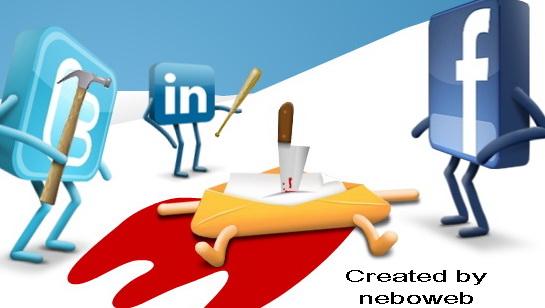The Guardian UK Article –
So email is dead, according to the infant prodigy Mark Zuckerberg, proprietor of Facebook. This news arrived in an email from the editor, where it nestled cosily with the 1,401 other messages that I hadn’t quite got round to reading.
On closer inspection, it turns out that Zuck is not exactly an unbiased source on this topic, because his prediction was made as he launched a new “messaging” service for his 750 million subscribers, which he obviously hopes will supplant a communications medium that’s been around since an engineer named Ray Tomlinson invented it in 1971.
Outbreaks of what the computer scientist John Seely Brown calls “endism” have been rife in discussions about communications technology since the time of Plato, who opined that writing would destroy memory. In the 20th century, it was widely trumpeted that television would be the death of, first, radio and, later, movies.
When the CD-Rom arrived, people predicted the death of the printed book. The explosive growth in text messaging was thought to herald the end of Civilisation As We Know It, or at least of grammar, spelling and punctuation. And so on, ad infinitum, until we reach the current prediction that an explosion of tweets, status updates and messaging onsocial networking sites heralds the death of email.
The prediction is buttressed by selective use of ambiguous statistics. On the one hand, it does seem that young people use email less than their elders. According to comScore, a market research firm, for example, the number of emails sent by 12- to 17-year-olds fell by nearly a quarter in 2010, while visits to web-based email sites such as Gmail, Hotmail and Yahoo declined 6% in the same period.
The only thing that’s surprising about this is that people are surprised by it. Most teenagers use technology to communicate with their friends and for that purpose email is, well, too formal. (Apart from anything else, because it’s an asynchronous medium, you don’t know whether someone has read your message.) So kids use synchronous messaging systems such as SMS and social networking tools that provide the required level of immediacy.
But the main reason young people don’t use email is that they haven’t yet joined the world of work. When (or if) they do, a nasty shock awaits them, because organisations are addicted to email. The average employee now-adays receives something like 100 email messages a day and coping with that deluge has become one of the challenges of a working life.
Organisational addiction to email has long since passed the point of dysfunctionality and now borders on the pathological, with employees sending messages to colleagues in nearby cubicles, people covering their backs by cc-ing everyone else and managers carpet-bombing subordinates with attachments. The real problem, in other words, is not that email is dying but that it’s out of control.
Written by John Naughton







